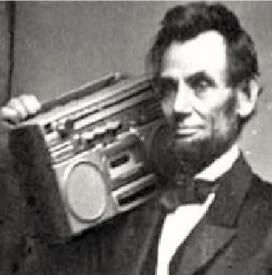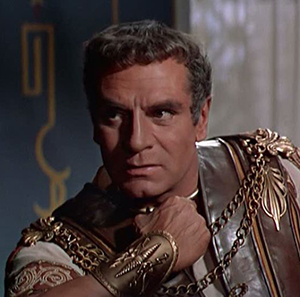http://www.canadafreepress.com/index.php/article/34299Memo suggests FBI had mole inside ABC News in 1990s
Oklahoma City bomber Timothy McVeigh being escorted from the Noble County Courthouse in Perry, Okla.
By John Solomon and Aaron Mehta
iwatchnews.org
11:24 pm, April 5, 2011
A once-classified FBI memo reveals that the bureau treated a senior ABC News journalist as a potential confidential informant in the 1990s, pumping the reporter to ascertain the source of a sensational but uncorroborated tip that the network had obtained during its early coverage of the Oklahoma City bombing.
The journalist, whose name is not disclosed in the document labeled “secret,” not only cooperated but provided the identity of a confidential source, according to the FBI memo — a possible breach of journalistic ethics if he or she did not have the source’s permission. The ABC employee was even assigned a number in the FBI’s informant database, indicating he or she was still being vetted for suitability as a snitch after providing “highly accurate and reliable information in the past” and then revealing information the network had obtained in the hours just after the 1995 terrorist attack by Timothy McVeigh. The journalist “advised that a source within the Saudi Arabian Intelligence Service advised that the Oklahoma City bombing was sponsored by the Iraqi Special Services who contracted seven (7) former Afghani Freedom Fighters out of Pakistan,” an April 17, 1996 FBI memo states, recounting the then-ABC journalist’s interview with FBI agents a year earlier on the evening of the April 19, 1995 bombing.
The memo recounts multiple contacts between the FBI and the journalist over a one-year period in 1995-96 but does not name the network insider, instead using the informant number NY290000-SI-DT and a simple description as “a senior official employed by ABC News for over 15 years.” ABC News told the Center for Public Integrity that it is not certain about the identity of the journalist involved in the 1995-96 episode, but does not believe he or she still works for the network. Spokesman Jeffrey Schneider said the FBI description of its interactions with the reporter raises serious concerns about intrusions on the First Amendment. “If true, it would certainly be of grave concern to us that the FBI would have created an informant file based on information gleaned from a reporter,” Schneider said. “It certainly would be very troubling for the FBI to recruit a news employee as a confidential source.” “It can create a perception of collusion between the government and the news organization. It would put journalists everywhere at risk if people believed that journalists are acting as government agents. And it could raise the specter of the government trying to spy on a news organization,” he added.
Former ABC investigative news producer Christopher Isham, now a vice president and Washington bureau chief for CBS News, issued a statement Tuesday evening denying he ever agreed to be treated as an informant after the blog Gawker speculated he was the journalist mentioned in the FBI memo. “The suggestion that I was an informant for the FBI is outrageous and untrue,” Isham said in a statement released by CBS. “Like every investigative reporter, my job for 25 years has been to check out information and tips from sources. In the heat of the Oklahoma City bombing, it would not be unusual for me or any journalist to run information by a source within the FBI for confirmation or to notify authorities about a pending terrorist attack. “This is consistent with the policies at every news organization. But at no time did I compromise a confidential source with the FBI or anyone else,” he said. “Mr. Cannistraro was not a confidential source, but rather a colleague - a paid consultant to ABC News who had already spoken to the FBI about information he had received.” In a separate statement, CBS said the network was reviewing the memo and has its own strict rules for handling source material. But it added it considered the allegations in the memo “a matter between the FBI and ABC News.” FBI officials declined to identify the reporter, but confirmed to the Center for Public Integrity that the bureau did in fact treat the reporter as a potential confidential source for a limited period of time as it tried to ascertain the validity of the information suggesting Iraqi involvement in the Oklahoma City bombing. Bureau officials said it was possible that over the years other reporters and members of other sensitive professions have been treated in FBI files as potential informers — even if those people did not intend to act as bureau sources — but such contacts are governed by strict rules. “There have been, and at the time of this memo there were, strict rules in place to govern the handling of reporters and people in other sensitive professions as sources of information,” Assistant FBI Director Michael Kortan said Monday. “There is no reason to think, regardless of what we gleaned from the memo, that those rules were not followed at the time of this memo.” The memo was recently discovered by Utah lawyer Jesse Trentadue, who has spent years researching the Oklahoma City case trying to prove a connection between the terrorist bombing and the death of his brother in an Oklahoma prison in the summer of 1995.
The root of the memo lies in Trentadue’s relationship with Terry Nichols, one of the defendants convicted in the 1995 terror attack, who is serving life in prison. Trentadue recently found the document — unredacted and still marked secret — in a box of documents gathered by Nichols’ defense attorneys. The memo suggests the ABC journalist reached out to a counterterrorism agent in New York City on his or her own the night of the bombing, in part because the information acquired suggested that “there were two other bombing incidents planned” soon at government offices in Houston and Los Angeles. The journalist agreed to be interviewed by counterterrorism agents again the next day, the memo says, but refused to identify his or her source. Nearly a year later, the network staffer was contacted by the FBI and agreed to divulge ABC’s source for the uncorroborated claim:
a former CIA officer named Vincent Cannistraro, who was on contract to the network as a consultant, who, in turn, had gotten the information from a Saudi general. During the 1996 re-interview, the ABC employee was questioned about the “source of questioned information” and “advised that the source was VINCENT CANNISTRARO, former Counter-Terrorism Chief of the Central Intelligence Agency (CIA),” the memo stated. The reporter further related that “when questioned regarding his source of this information, CANNISTRARO confirmed that it was a ‘General within the Saudi Arabian Intelligence Service,’” the memo stated.
In an interview this week, Cannistraro said he was surprised that an ABC journalist had contacted the FBI and relayed the information, in part because it had not been corroborated and was just a rumor passing through Saudi circles. Cannistraro said he provided the information himself to the FBI immediately after the bombing because of suggestions there might be imminent additional attacks possible, but hadn’t authorized ABC to release the information. Cannistraro called the memo “interesting” and noted that when he worked for the CIA they had rules in place blocking the use of journalists as sources. He said being “outed” was “not a concern” because he had already shared the information with the bureau. Journalism ethics experts said the memo’s description of the relationship between the FBI and the ABC reporter was troubling. “Obviously any reporter who is simultaneously working for a media outlet and giving info to the government has a conflict of interest, says Jill Olmsted , who teaches journalistic ethics in her role as journalism division director for American University’s School of Communication.
Oklahoma City Bombing, ABC News & The FBI
Moderator: Metal Sludge
- EvilMadman
- Playing Shitty Clubs in a Van
- Posts: 857
- Joined: Mon Jun 08, 2009 2:45 pm
- Location: Slayerville, N.J. 08871
Oklahoma City Bombing, ABC News & The FBI

Re: Oklahoma City Bombing, ABC News & The FBI
was this the same source that turned out to be the 'downing street' memo  .
.
- EvilMadman
- Playing Shitty Clubs in a Van
- Posts: 857
- Joined: Mon Jun 08, 2009 2:45 pm
- Location: Slayerville, N.J. 08871
Re: Oklahoma City Bombing, ABC News & The FBI
Uh, probably not. As it was "1995-1996", and the Downing Memo wasn't until 2005.Woland wrote:was this the same source that turned out to be the 'downing street' memo.
Iraqis linked to Oklahoma atrocity
By James Langton in New York, for the Evening Standard
21.10.02
The FBI is under pressure from the highest political levels in Washington to investigate suspected links between Iraq and the Oklahoma bombing.
The methodically assembled dossier from Jayna Davis, a former investigative TV reporter, could destroy the official version that white supremacists Timothy McVeigh and Terry Nichols were solely responsible for what, at the time, was the worst act of terrorism on American soil. Instead, there are serious concerns that a group of Arab men with links to Iraqi intelligence, Palestinian extremists and possibly al Qaeda, used McVeigh and Nichols as front men to blow up the Alfred P Murrah Federal Building in Oklahoma City. Davis, who was one of the first reporters on the scene after the blast, has spent seven years gathering evidence of a wider conspiracy. But it is only as America prepares to wage war on Iraq and Saddam Hussein that her conclusions are being taken seriously at the highest level. Finally, she says, the authorities are examining the idea "that the Oklahoma bombing might not simply be the work of two angry white men".
What triggered Davis's investigation was a report immediately after the Oklahoma explosion of Middle-Eastern looking men fleeing in a brown Chevrolet truck only minutes earlier. The FBI launched an international hunt for the men but later cancelled the search. Terry Nichols, now serving life for conspiracy in the bombing and involuntary manslaughter, was the original "John Doe 1" but, with his arrest, the FBI claimed that the case had been wrapped up. They eventually concluded that "John Doe 2" was Nichols all along. Davis thought otherwise. Early on, she found that a brown Chevrolet truck almost identical to that once hunted by the FBI had been seen parked outside the offices of a local property management company several days before the bombing. The owner was a Palestinian with a criminal record and suspected ties to the Palestine Liberation Organisation. Later she found that the man had hired a number of former Iraqi soldiers. He had recruited them to carry out maintenance on his rental properties, but several were later discovered to be missing from work on the day of the bombing. Eyewitnesses have told Davis that they saw several of them celebrating later that day. But what increasingly drew her attention was another Iraqi living in Oklahoma City, a restaurant worker called Hussain Hashem Al Hussaini, whose photograph was almost a perfect match to the official sketch of "John Doe 2". Al Hussaini has a tattoo on his upper left arm, indicating he was once a member of Saddam's elite Republican Guard.
Since then, Davis has gathered hundreds of court records and the sworn testimony of two dozen witnesses. Several claimed to have seen a man fitting Al Hussaini's description drinking with McVeigh in a motel bar four days before the bombing. Others positively identified former Iraqi soldiers in the company of McVeigh and Nichols. Two swore that they had seen Al Hussaini only a block from the Murrah building in the hours before the bombing. With the case against McVeigh and Nichols seemingly watertight, the FBI has until now consistently refused to reopen it. McVeigh went to his death in the execution chamber two years ago, insisting he alone was responsible. But she has evidence that up to 12,000 Iraqis were allowed into America after the Gulf war. Some of these, she suspects, are using their status as refugees for cover. "They are here," she said. "And they are highly trained and motivated." The renewed interest in Washington is clearly linked to America's case against Saddam as broker of world terror. And there is more. Al Hussaini, who entered the US from a Saudi refugee camp, worked after the Oklahoma bomb as a cook at Boston's Logan Airport - from where the two hijacked aircraft that hit the World Trade Center took off.
There is another confirmed incident that suggests something more sinister. Two of the 11 September conspirators held a crucial meeting at a motel in Oklahoma City in August 2001. The motel's owner has since identified them as ringleader Mohammed Atta and Zacarias Moussaoui, the so-called 20th hijacker, who has known links with shoebomber Richard Reid.
thisislondon.co.uk
I'll bet almost anything that Saddam had a greasy hand involved in the first WTC bombing.November, 1999 — U.S. District Judge Timothy Leonard delivered a sweeping vindication of Davis's KFOR-TV investigation. He dismissed the case in a ruling which upheld as "undisputed" all fifty statements of fact and opinion that she had set forth implicating the plaintiff in the bombing.
March 26, 2003 (six days after the start of the Iraq war) — The three-judge panel handed down a stinging rebuke of Al-Hussaini's pattern of foot-dragging and delays. They unanimously affirmed that Davis's carefully and painstakingly gathered evidence of guilt had not "recklessly disregarded the truth."
renewamerica.com
January 1, 2007

Re: Oklahoma City Bombing, ABC News & The FBI
give it 25 years... like how we found out about the my lai and other massacres  .
.
- MasterOfMeatPuppets
- MSX Tour Support Act
- Posts: 4249
- Joined: Wed Feb 07, 2007 4:29 pm
Re: Oklahoma City Bombing, ABC News & The FBI
It didn't take 25 years to find out what happened in My Lai.Woland wrote:give it 25 years... like how we found out about the my lai and other massacres.


Re: Oklahoma City Bombing, ABC News & The FBI
you're right. it took that long for the whitewashing to disappear.
sorry .
.
sorry
- MasterOfMeatPuppets
- MSX Tour Support Act
- Posts: 4249
- Joined: Wed Feb 07, 2007 4:29 pm
Re: Oklahoma City Bombing, ABC News & The FBI
What whitewashing?Woland wrote:you're right. it took that long for the whitewashing to disappear.
sorry.


Re: Oklahoma City Bombing, ABC News & The FBI
...MasterOfMeatPuppets wrote:What whitewashing?Woland wrote:you're right. it took that long for the whitewashing to disappear.
sorry.
- EvilMadman
- Playing Shitty Clubs in a Van
- Posts: 857
- Joined: Mon Jun 08, 2009 2:45 pm
- Location: Slayerville, N.J. 08871
Re: Oklahoma City Bombing, ABC News & The FBI
"More than 400 witnesses were questioned and 20,000 pages of testimony taken before the inquiry reported its findings in March 1970."In late 1969 the grisly details of My Lai were unleashed on the public, following a report by the investigative journalist Seymour Hersh. Around the same time the army commissioned an investigation into the cover-up, which became known as the Peers inquiry. More than 400 witnesses were questioned and 20,000 pages of testimony taken before the inquiry reported its findings in March 1970.
bbc.co.uk
How, exactly, does this constitute a "whitewashing"?


- SeminiferousButtNoid
- Certified Asshole
- Posts: 17738
- Joined: Mon Apr 25, 2005 6:58 pm
- Location: Balls Deep In The Hoopla
Re: Oklahoma City Bombing, ABC News & The FBI
GreatWhiteSnake wrote:I'm 46 and my dad's 67 and we kiss each other on the mouth and my 9 yo old son and I do too. It's because we love each other. A lot. And could give a shit what anyone else thinks about us kissing on the mouth.
-
MurrayFiend
- Signed to a Major Label Multi-Album Deal
- Posts: 22717
- Joined: Sat Jul 02, 2005 5:09 pm
- Location: Toronto
Re: Oklahoma City Bombing, ABC News & The FBI
Wow, McVeigh kinda reminds me of ballplayer/ NY Mets underperformer Jason Bay.
HeavyMetalZombie666 wrote:Any chicks on this board like Sean Connery or Roger Moore?






